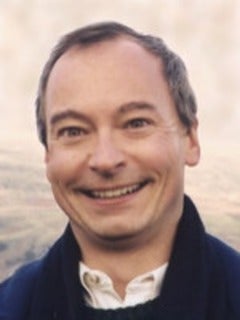Point defects may act as compensating centers, charge traps, or radiative or nonradiative recombination centers. In addition, unintentional impurities often play an equally detrimental role; for instance, carbon that is unavoidably incorporated during growth can act as a recombination center in nitrides, or as a charge trap in oxide dielectrics. Theoretical advances now enable us to calculate the electronic and optical properties as well as radiative and nonradiative carrier capture coefficients with unprecedented accuracy. These capabilities have allowed us to evaluate Shockley-Read-Hall coefficients and identify specific defects that play a key role in limiting the efficiency of nitride light emitters.

Chris Van de Walle is a Distinguished Professor of Materials at the University of California, Santa Barbara and the inaugural recipient of the Herbert Kroemer Endowed Chair in Materials Science. Prior to joining UCSB in 2004, he was a Principal Scientist at the Xerox Palo Alto Research Center (PARC). He received his Ph.D. in Electrical Engineering from Stanford University in 1986, and was a postdoctoral scientist at IBM Yorktown Heights (1986-1988) and a Senior Member of Research Staff at Philips Laboratories in Briarcliff Manor (1988 1991). He has published over 400 research papers, holds 23 patents, and has given over 190 invited and plenary talks at international conferences. Van de Walle is a Member of the National Academy of Engineering, a Fellow of the APS, AVS, AAAS, MRS, and IEEE, as well as the recipient of a Humboldt Award for Senior US Scientist, the David Adler Award from the APS, the Medard W. Welch Award from the AVS, and the TMS John Bardeen Award.
